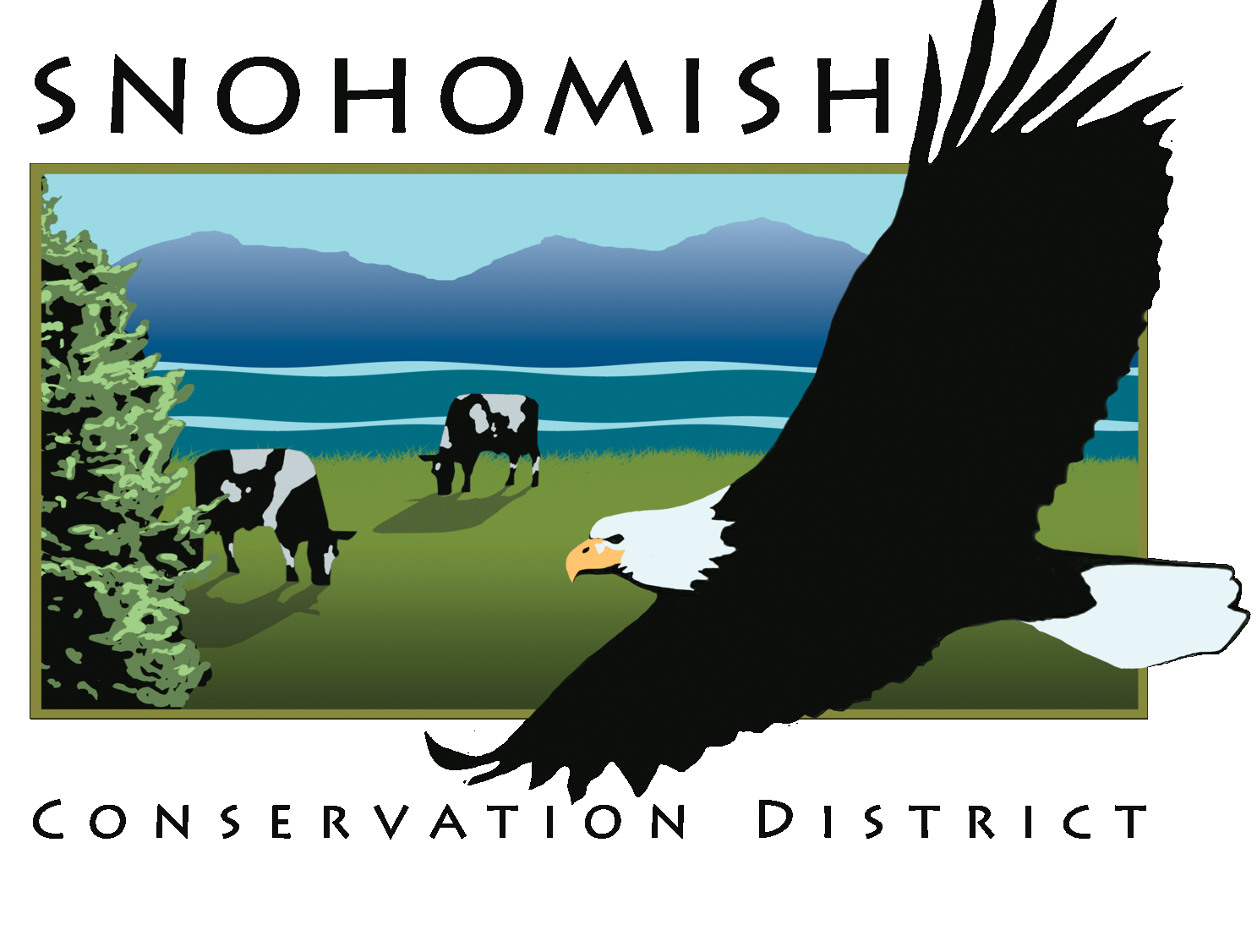Cleaner Water for a Healthier Community
/Rain garden construction
Although most of us refuse to use umbrellas, the fact remains that our annual rainfall averages about 35 inches in the western part of the county and increases sharply as you approach the Cascade Mountains. Managing the stormwater runoff resulting from all of this rain remains a crucial part of Snohomish Conservation District’s work to reduce pollution in our streams, rivers, and Puget Sound.
Rain gardens are an important tool in these efforts. These gardens filter rainwater runoff through a special soil mixture that removes pollutants and slows water so it can refresh groundwater stores. Rain gardens also provide habitat for important pollinators and native species, and are a charming addition to any property. Considering all of these benefits, we were proud to install five rain gardens in Lynnwood in partnership with the City of Lynnwood and three rain gardens in south Everett in 2022.
Realizing we can’t tackle our region’s stormwater issues on our own, we also continued spearheading green stormwater infrastructure efforts in collaboration with Whidbey Island Conservation District and King County. Through these partnerships, we designed rain gardens for four sites in Island County and installed 1,925 gallons of rainwater storage for farms on Camano Island. With funding from the Department of Ecology, we built nine rain gardens in White Center, located in King County.
We helped locals become stormwater stewards too. We shared rain garden installation and maintenance guidelines with landscape professionals looking to install and care for water storage infrastructure on their own. We also provided rain garden owners with resources to help keep their yard a stormwater-filtering machine. We facilitated hands-on education to 200 residents about rain gardens, soil infiltration, rainwater catchment, rain barrel installation, and converting limited-use lawns to multi-benefit edible gardens.
We’re investing in the future through our contribution to revising the Rain Garden Handbook for Western Washington Homeowners alongside partners, including stormwater managers, rain garden designers and installers, and scientists. The update will incorporate the latest lessons learned and scientific data, as well as increase accessibility so more rain gardens are built in our community.
Our 2022 green stormwater infrastructure projects exemplify what is possible when a community unites to protect their water. Rather than letting large quantities of runoff flow untreated to Puget Sound, more and more is being filtered and utilized by people and plants in Snohomish, King, and Island Counties.


